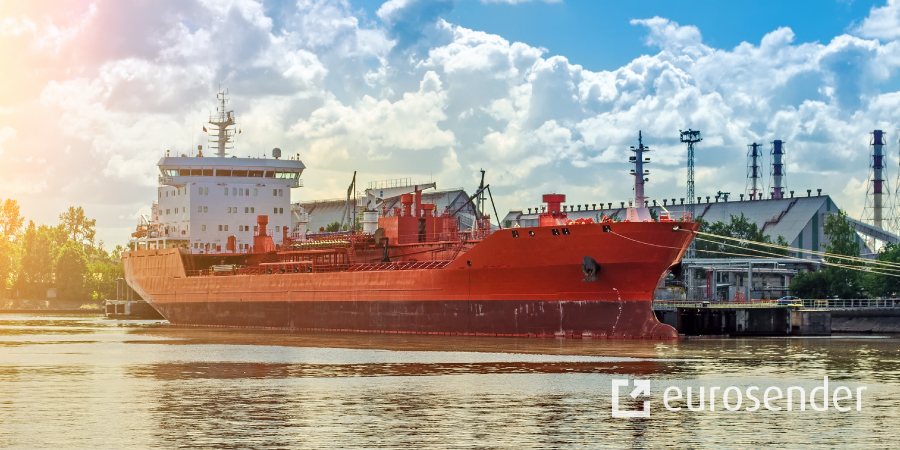The demand for dry bulk commodities is ever-increasing as a result of countries trading with each other. Bulk carriers are responsible for shipping both the minor and major dry bulk commodities that contribute extensively to the foundations of the world economy.
List of dry bulk commodities
The vessels depend on the type of cargo that is transported, and some are dedicated to transporting iron or coking coal, whilst others will ship steel, cement, salt and others. With approximate 38% of the total seaborne trade, the list of dry bulk commodities is as follows:
Major dry bulk commodities
With the increased industrial development in Southwest Asia and China, there was a spike in demand for dry bulk cargo. As the name suggests, the transportation for this type of raw materials is responsible for the larger portion of the dry bulk trade, or to be more precise around 67% of the list of total dry bulk commodities. The type of cargo that goes in this category is the following:
- Iron ore;
- Coal (Coking Coal and Steam Coal);
- Grains.
Learn more about:
Here is a list of the dry bulk commodities from the major cargo category, and the type of shipping vessel:
| Bulk ship name | Cargo |
| Very Large Ore Carrier (VLOC) | Iron ore |
| Capesize | Iron ore, coking coal |
| Panamax | Iron ore, coking coal, thermal coal, grain |
List of minor dry bulk commodities
The rest of the 33% of the total dry items shipped by sea in smaller and more versatile vessels are the minor bulks, such as:
- Fertilisers;
- Steel;
- Bulky agricultural products;
- Cement;
- Petroleum Coke;
- Scrap.
The minor cargo is not transported by the same ships as the iron ore, coal and grains, but instead, by the following:
| Bulk ship name | Cargo |
| Handymax | Thermal coal, grain, salt, cement, steel |
| Small handy | Grain, cement, steel, ore |
If you are looking into other transportation solutions, check out the following articles:
- Specialised freight services
- Tail lift delivery
- Calculate road freight shipping time
- Get freight quotes online
- Tailored pallet shipping quotes
Is packing necessary for minor and major dry bulk commodities?
Generally, the ships carrying dry bulk cargo have prebuilt containers directly on the vessel. Therefore, the means of transport, the boat, is serving as a container for raw materials. Any special packaging is not required both for the significant and minor dry commodities, and the material is just placed or poured inside the prebuilt containers. Some vessels are equipped with cranes on board for those ports that do not have them.
How can Eurosender organise transportation for dry bulk commodities?
Currently, at Eurosender, we cannot offer you a shipping service for all dry bulk commodities; therefore, we would invite you to send us your requirements, and our team of logistics experts will further see the options and get back to you in the fastest possible time.
Otherwise, we can arrange the transport for many types of shipments, and choose the most appropriate transport solution to fit your specifications from our vast portfolio of services. Whether you need to ship sea freight, air freight or road freight, you can be assured of assistance from our logistics experts along the way. If you are opting for multimodal transport, you can send a request to our specialists, and our team will prepare an offer for you according to your requirements. Customising solutions based on your needs, and building relationships and trust through joint collaboration with our customers, is something that we strive for!
Is there any difference between the bulk carrier and container ship?
Yes, even though both have a great carrying capacity, there is a major difference between bulk carriers and container ships.
The container ships have the cargo already packed and prepared in containers, and every load can be of different sizes and should be prepared according to the guidelines for packing. These guidelines include instructions primarily to protect the shipment from any unexpected situations during the time of transit, as, in the open air and sea, many things can go wrong. The container ships can carry anything from huge machinery, cars, furniture, footwear, food and other things.
On the other hand, the bulk carriers have the cargo in already prebuilt deep draught to carry the raw and unpacked materials.
What are the advantages of bulk carriers?
- These types of ships are recognisable by their large size, and usually, the larger the boat, the greater the cost benefits, meaning cheaper bulk transport.
- Their loading capacity is substantial and can meet the demands only on one-go, without the need for multiple transportation turns.
- Contributes to enlarging and maintaining trading between countries.
Are there any disadvantages of bulk carriers?
The bulk ships can be rather dangerous if not handled according to the universal guidelines imposed by the International Maritime Organization. Moving, ignition and freight immersion can threaten the safety of the ship; therefore, this type of cargo carries a great portion of risk during transit.
Carriers of such materials must always ensure the safety and security of the vessel, safe load and pre-planned routes.
Want to know more?
Check our articles that explore different topics within the logistics industry.
